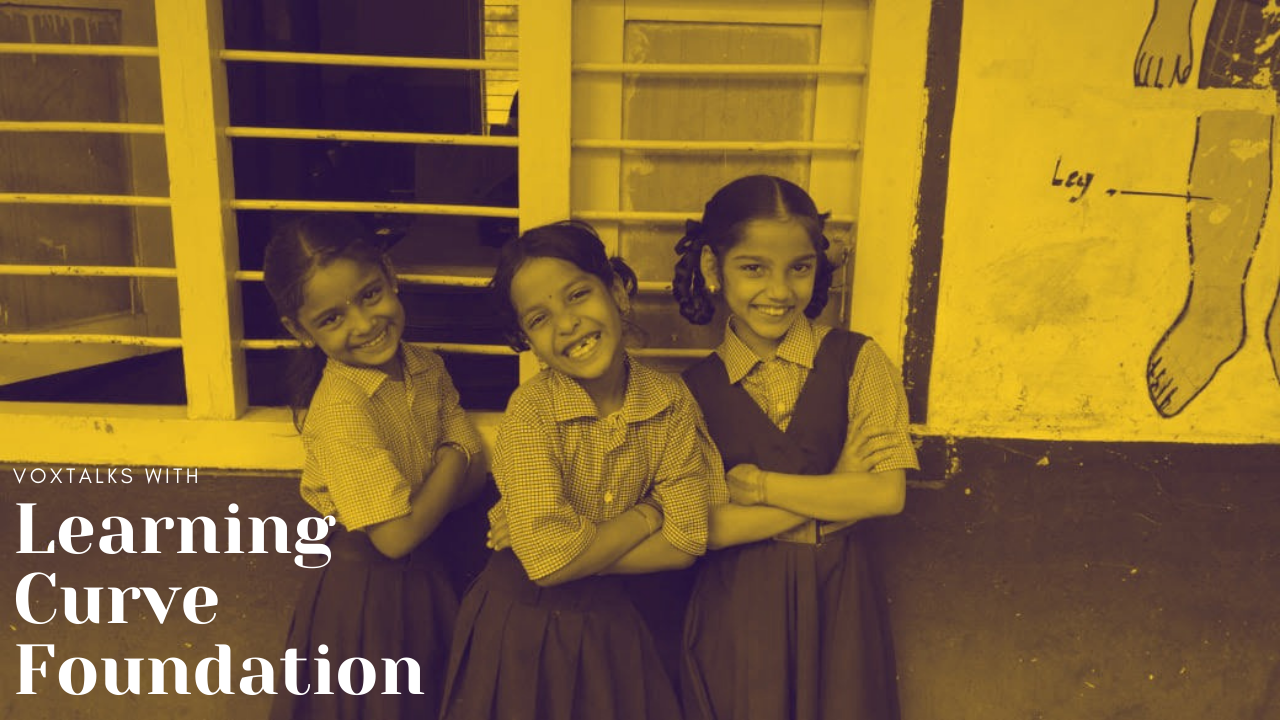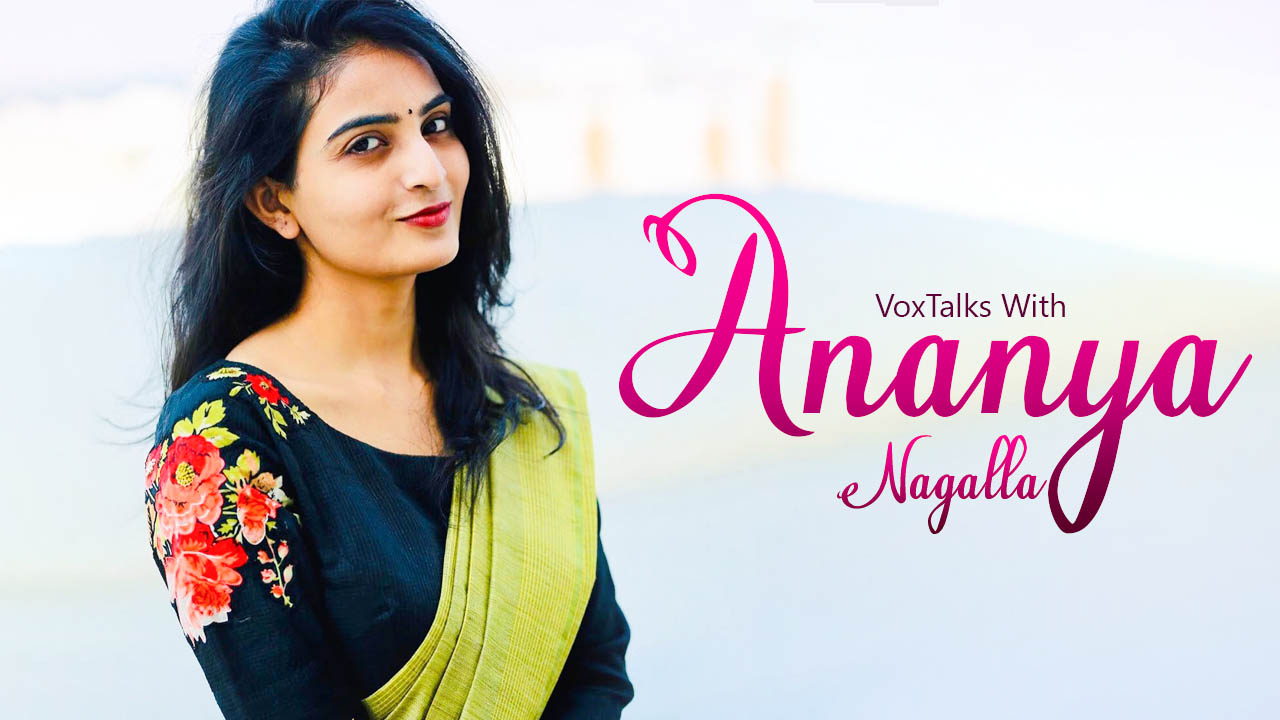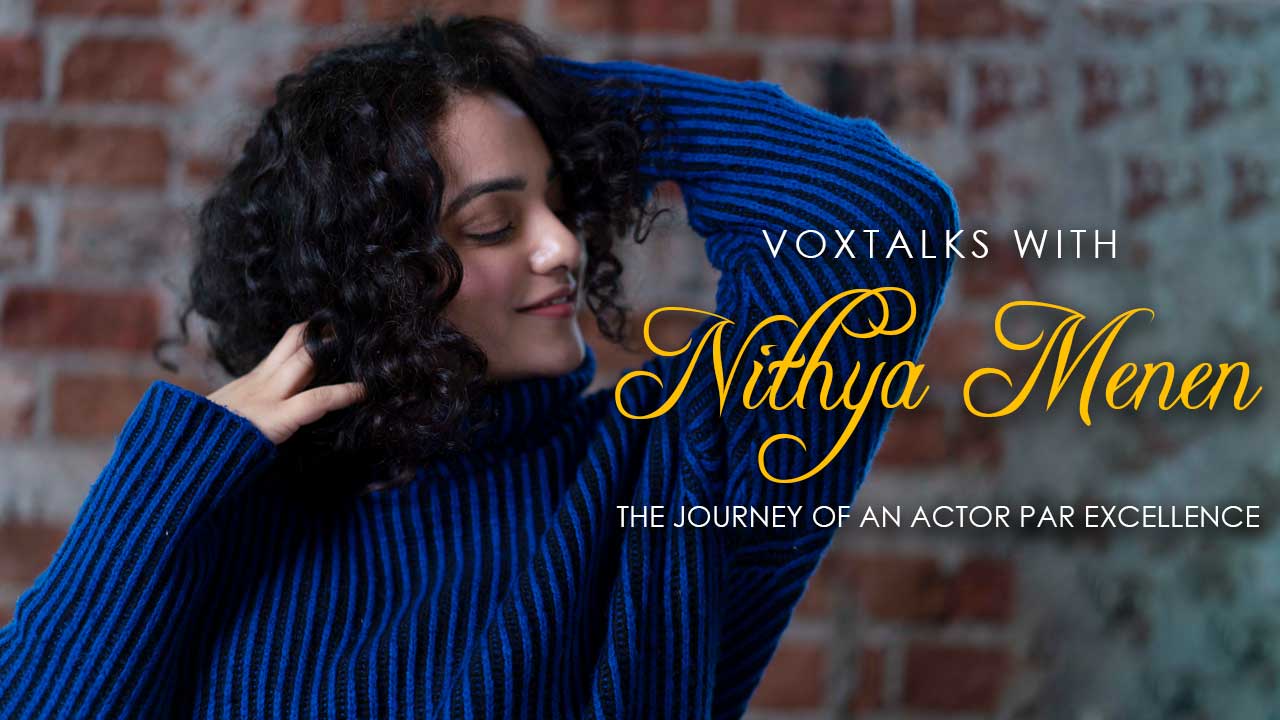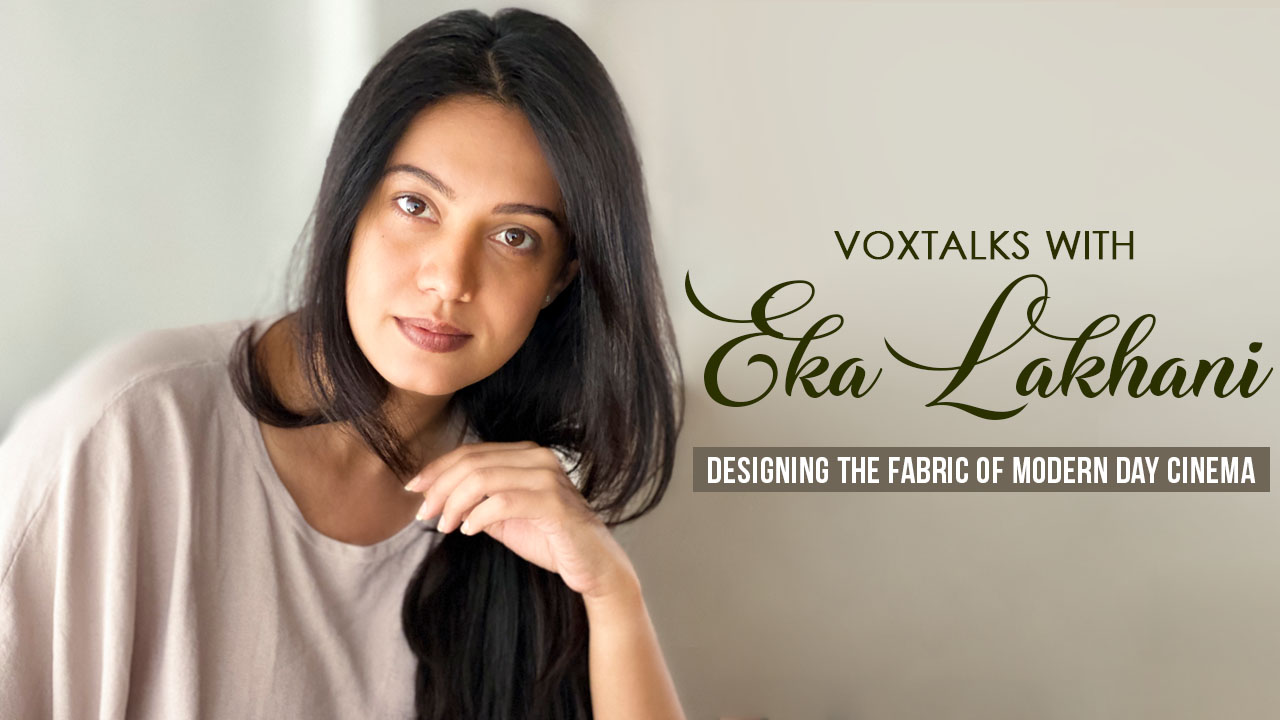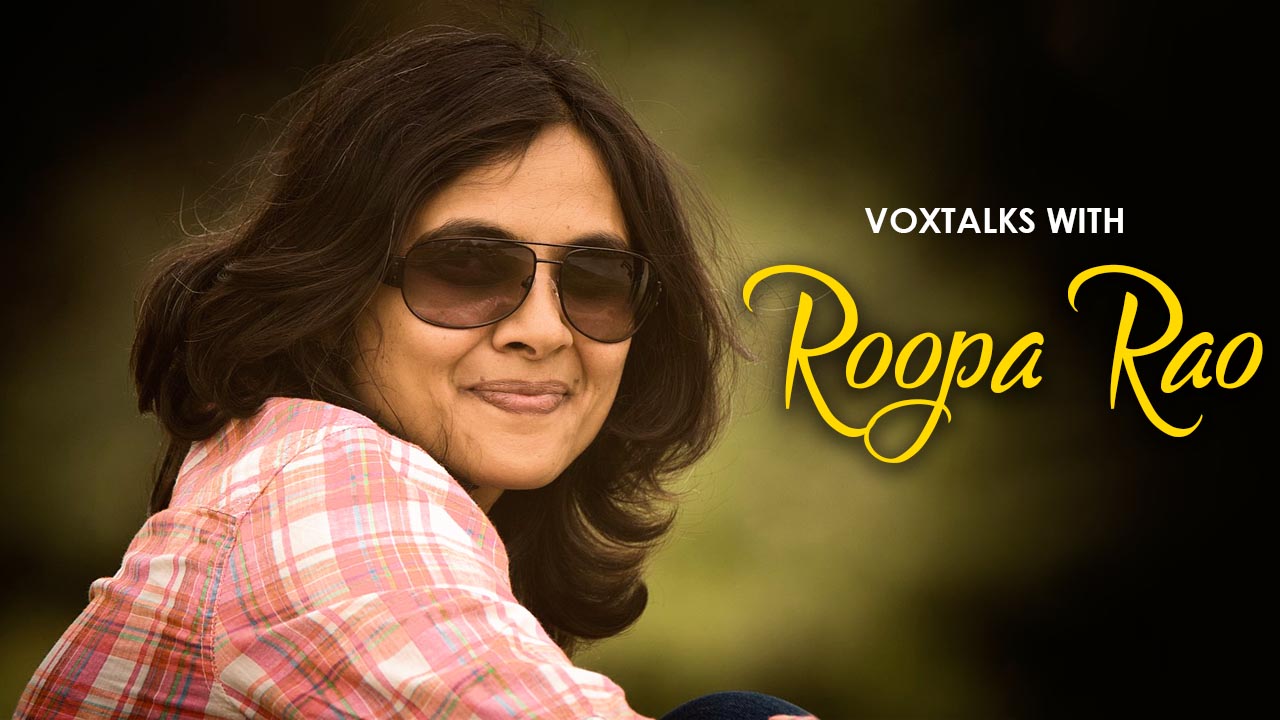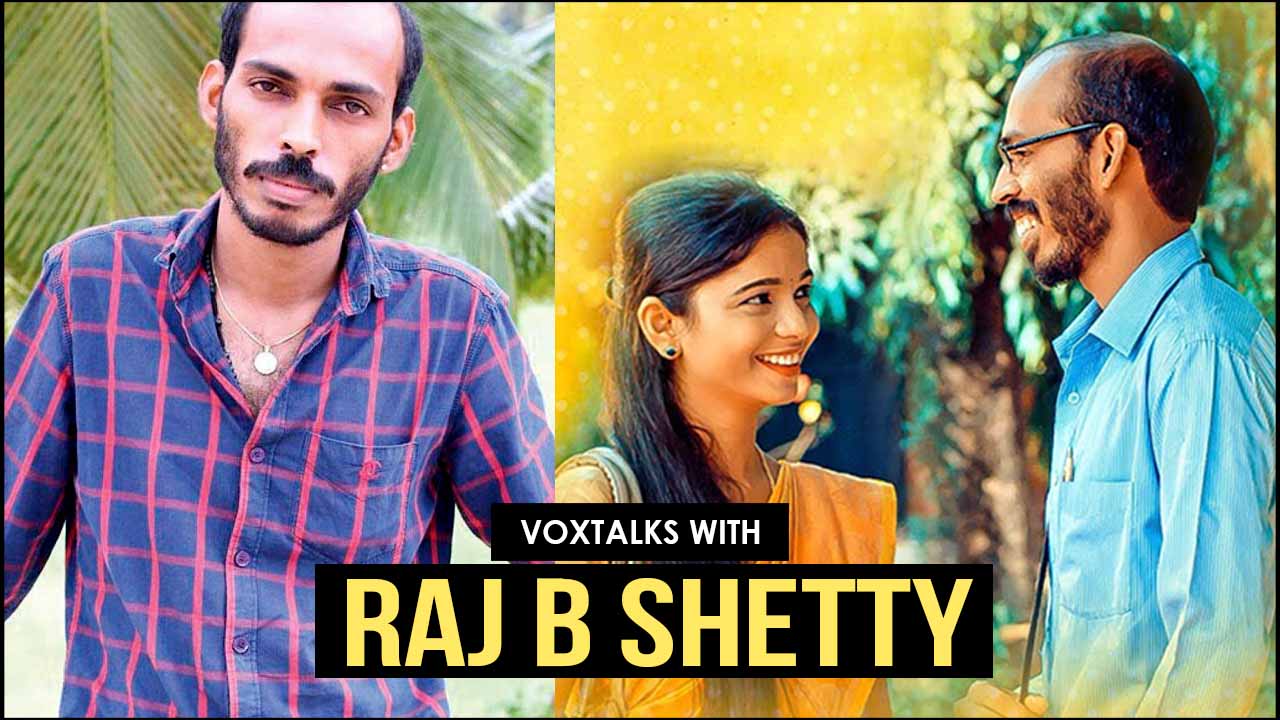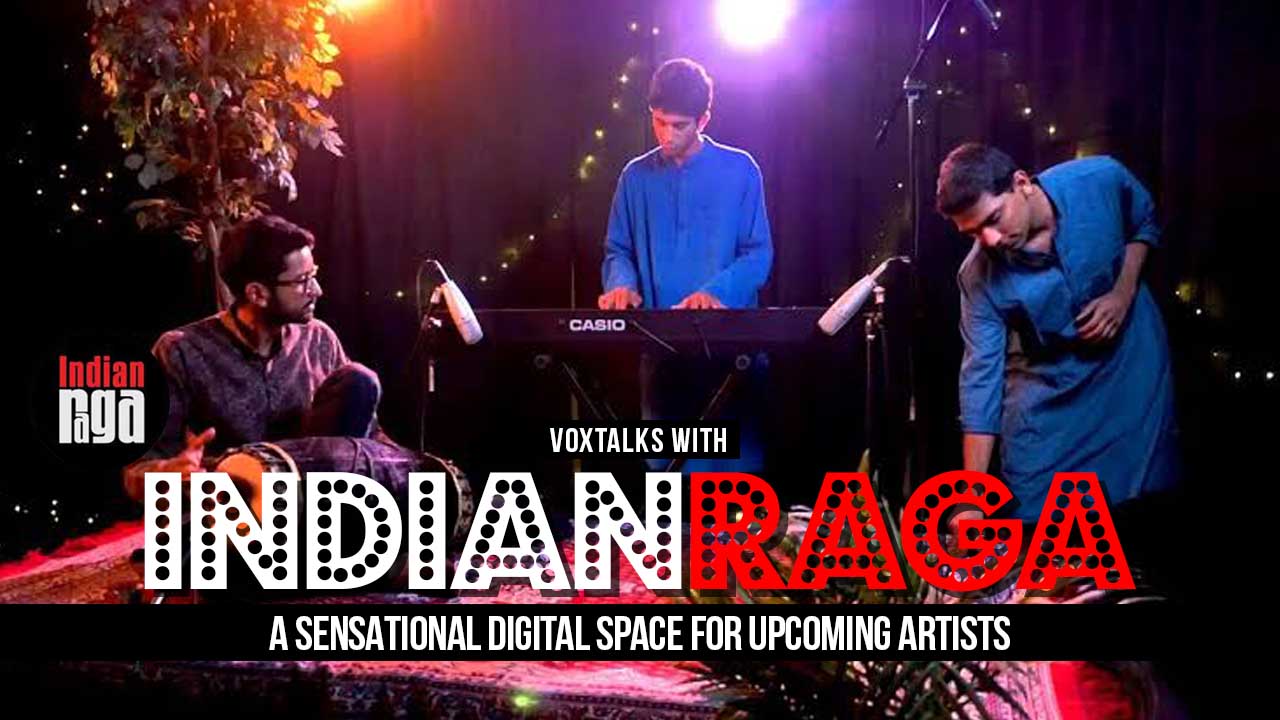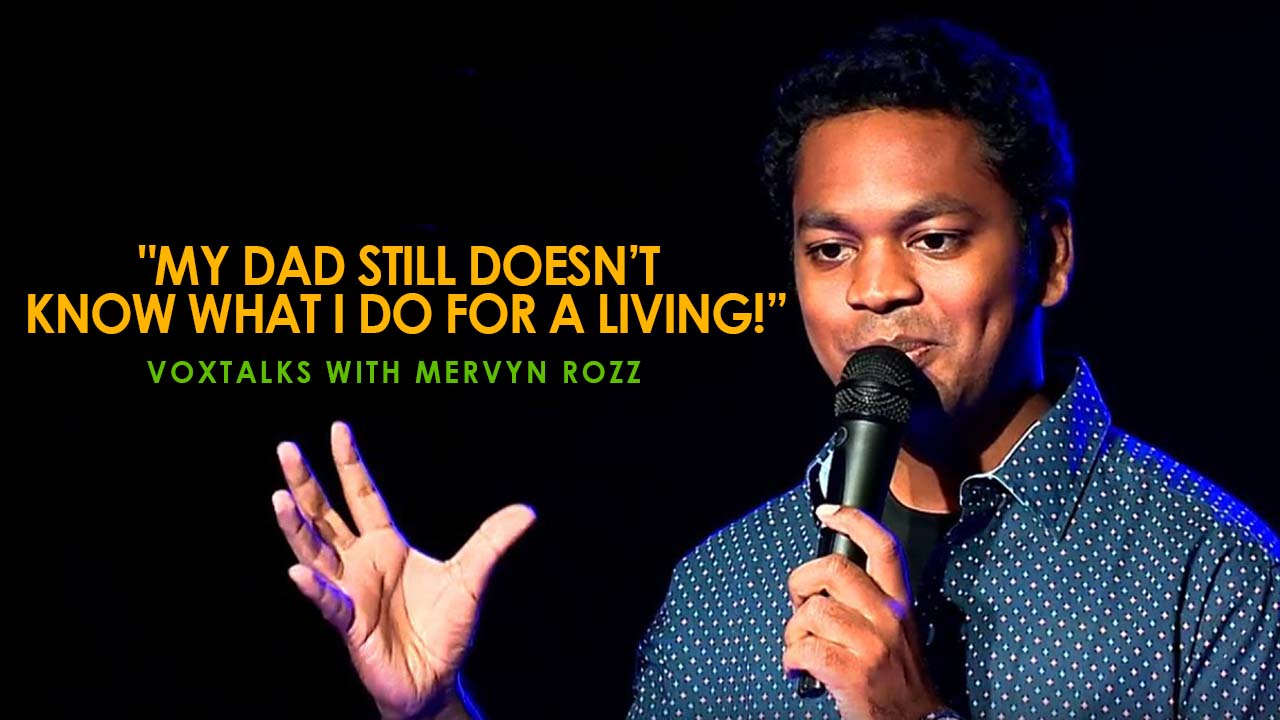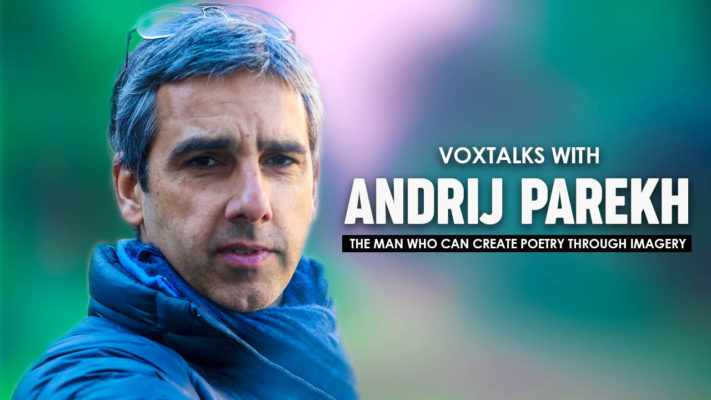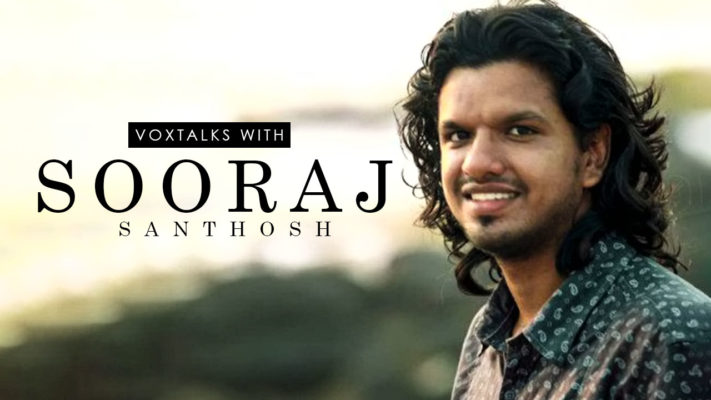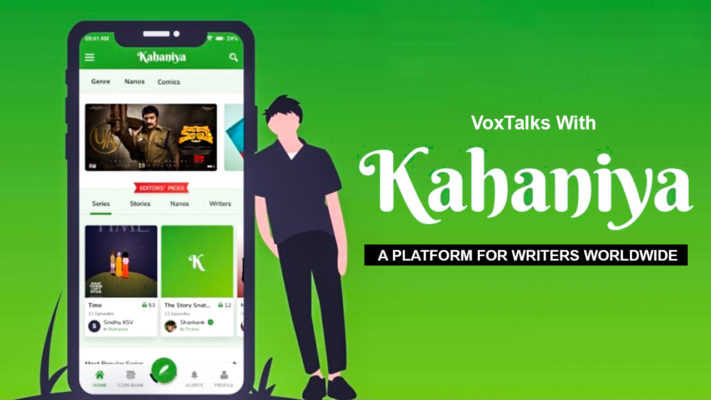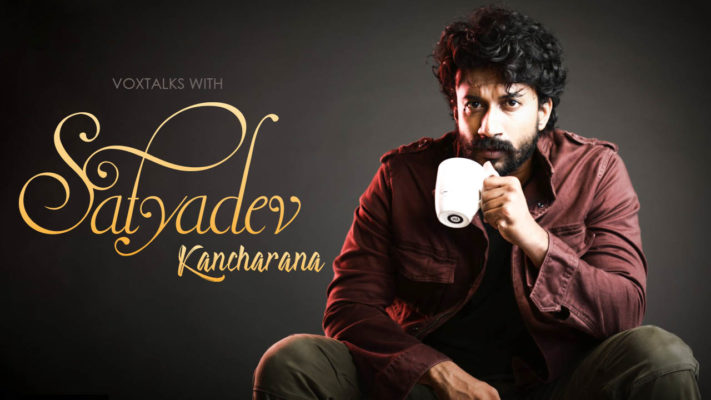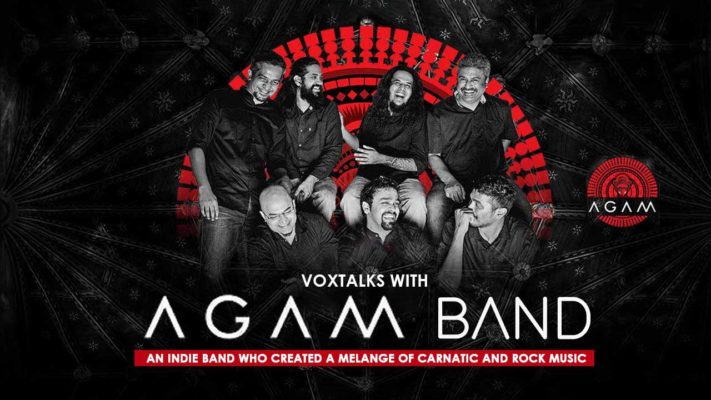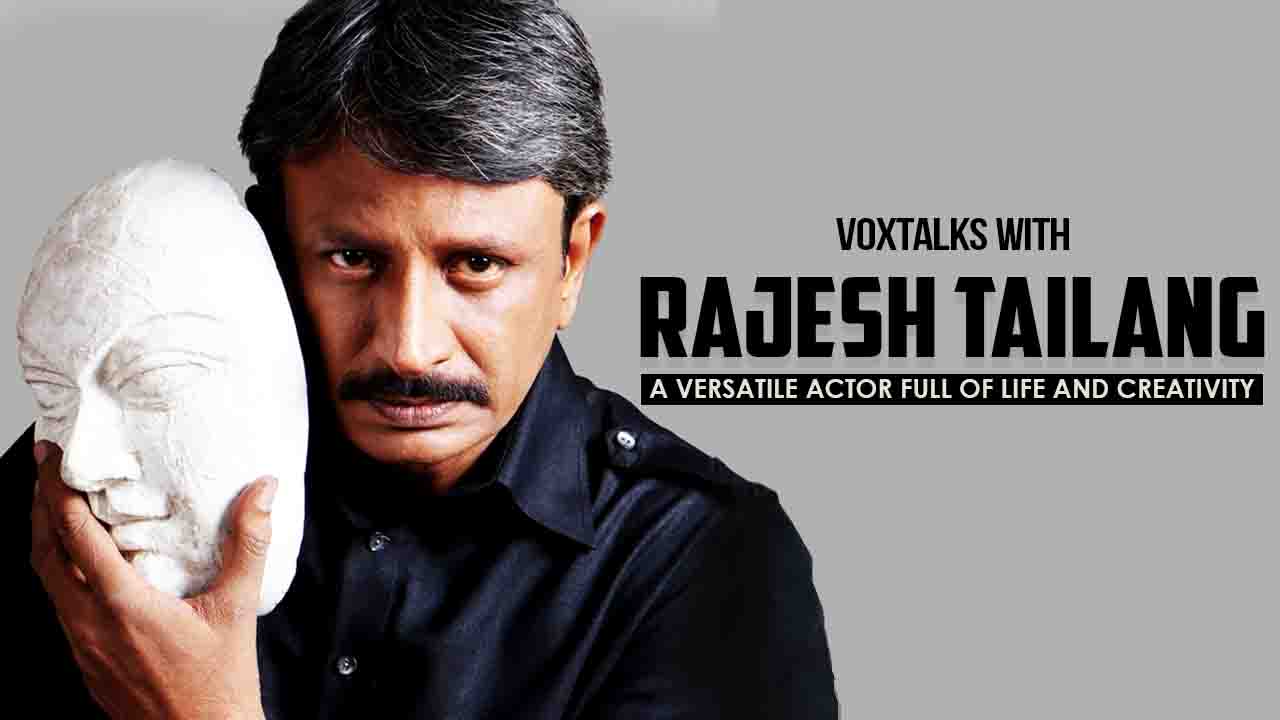
Rajesh Tailang: The Multi-Talented Artist Who Just Loves Creating New Things
In the last few years, we have seen a plethora of hit web series on various platforms. Along with getting to watch some incredible and diverse stories, we have witnessed some incredibly talented pool of actors. But one name which has been constant, in the last two years, is Rajesh Tailang. Rajesh Tailang, who has been leaving his mark in the Film Industry with his remarkable acting and many other exceptional talents for the last 25 years, is now conquering the webspace. He has been a major part of hit series like Mirzapur and Selection Day and has shown the wide range of his acting ability with Delhi Crime (personally my favourite work of his). Playing the role of Bhupender Singh, a cop, Rajesh Tailang adds minute nuances and deeper shades to his character and successfully makes Bhupender Singh, a relatable and empathetic character for the audience. Fortunately, we got to have a chat with him, where he graciously talks about the various serials he has been part of back in the day, his journey so far, and his views on the different platforms, among other interesting and fascinating things. Below is the excerpt..
Sir, you played the character of Bhupender Singh in Delhi Crime and what an amazing performance that was. Congratulations on that. So, I believe that the character had multiple layers to it. I mean you had to emote anger, frustration and also be patient at the same time. Also, since you were playing a cop, there must be a lot of research that went behind it. So how did you prepare for a character with such depth? And how challenging was it for you?
Thank you. See, the script is like a bible. As an actor, you need to find the details in the script you get. Of course, the background work and research need to be done and if it’s a fictional character, you tend to look for some references. But if a character is based on some real person or a real incident, then the research becomes more important. Anyway, the police officers depicted in the series are not exactly similar to the real ones. I mean, you tend to take some creative liberty. But I did meet the officers on whom the story is based and had a chat with them. Apart from that, I read about the case and spent time at the police station. Although I did play the character of a cop, a couple of times before, this one was different and more realistic.
Another interesting fact is that 20 years back, I directed more than 70 episodes of a show called India’s Most Wanted which used to air on Zee TV at that time. This show was produced and directed by Suhaib Ilyasi initially, who had stopped doing it due to some issues. Then Manoj Raghuvanshi started producing it and I started directing the episodes. During that time, I spent a lot of time with policemen in Delhi, since the show was based out of Delhi. Thus, I used to visit police stations many times, talk to the cops, and get to know about a lot of crime stories.
I almost covered 140 crime stories in India’s Most Wanted as we used to have two stories in every episode. So, I had researched a lot about the same. Although I wasn’t aware of the filmy modus operandi of how a cop needs to be, I had a fair knowledge about how policemen are in real life and how they work. And all of this helped me a lot while portraying Bhupender Singh in Delhi Crime.
Delhi Crime had an ensemble cast of some brilliant actors like yourself, Shefali Ma’am, Rasika, Adil Sir, Gopal Sir to name few. So how was your experience working with these artists? And since the topic of the series was a bit sensitive, how was the environment like on the sets of Delhi Crime?
The environment on the sets was pretty friendly. See, Adil is my classmate from NSD (National School of Drama) and we have been friends for a long time now. I knew Rasika also, but I had never worked with her before. Gopal is an old friend and he is from NSD as well. So I had already worked with more than half of the cast members. But this was the first time that I was working with Shefali and luckily, we were able to establish a good rapport, right away. I had great fun working with her. Apart from this, I have been working with Richie Mehta, the director of this series, for a very long time now. Right from his first film Amal, I have been associated with him. We share a very good rapport as well.
Thus, the atmosphere was lighthearted but at the same time serious too. Because everyone, in general, knew about this subject and people were enraged from within; I mean, there was a sense of anger within us. There was a feeling of helplessness when the actual incident occurred, and we didn’t know what to do within the limited capacity that we had.
So, when we got an opportunity to do something, we thought we can tell people about this issue in a better manner and maybe contribute in our own way.
As you mentioned, you have been a long-time collaborator with Richie Mehta Sir. How has your chemistry with him been and what is it that you enjoy most when working with Richie Sir than compared to others?
I wouldn’t want to compare Richie with other directors, as everyone is different in their own way. With Richie, everything is in a friendly manner. He gives me a lot of liberty to explore myself as an actor, and also change dialogues on the whim. That’s also because I have written dialogues for two of his older films. Even for Delhi Crime, he had asked me to write the Hindi dialogues. But due to lack of time at that point, I had told Richie that this time I want to concentrate only on acting.
I have been associated with Richie in everything he has done so far, except for a film that he had done for Hollywood. So, we share a special bond and friendship between us. Our sensibilities match a lot, and we have spent a lot of time together roaming and chatting around, and so we know each other very well. And because of that, we are at a comfort level, wherein we don’t have to communicate or explain much to each other. We tend to easily understand what the other person means.
You received global acknowledgment for your performance in Siddharth. I guess you were nominated at a few awards events and won an award on one occasion. Congrats on that. So how did this movie happen and what was the process you followed to prepare for such an incredible role. In that regard, is there any particular process you follow when you are approached or have some checkpoints for yourself in terms of your preparation?
Yes, thank you. I actually won two awards for Siddharth and got nominated once, at different film festivals. (His lead performance in the film Siddharth got him rave reviews and fetched a nomination in Canadian Screen Awards 2014 (Genie Awards) for Best Actor in a lead role. He also got Best Actor’s award in Louisiana International Film Festival 2014, the USA and Best Actor in the Misaff film festival 2015, Canada.) See, the preparation completely varies from character to character and majorly depends on the story and the character. Having said that, as an actor, every time I try to incorporate a strong belief that I have; my first priority is never about what the character is feeling, but it’s about what the character is thinking. I work more on the thought process of the character rather than his emotional graph. So, I always look to figure out the mental framework of the character. See, emotions are the byproducts of thoughts. To me, emotions are not at the forefront but thoughts are and that’s how emotions generate automatically. And that’s why I always try or most of the time end up not making it overdramatic. So, this is my key approach towards acting.
And regarding Siddharth, Ritchie wrote the story and then approached me asking me to play the lead character and also wanting me to help him with writing Hindi dialogues. So, I asked him for the script which he shared with me along with the notes and everything he had written. So, initially, when Richie wrote the story, the lead character, Mahendra Saini, was a fruit vendor, who sells fruits and vegetables. Then I told him that I have an idea.
Actually, I used to stay in Delhi and in our vicinity there were a lot of repair fixers who used to roam around. They used to repair a bunch of different things and carried a megaphone, which had always fascinated me. I always used to think that this is a very unusual sort of profession. So, I interviewed a repair fixer, roamed around with him and shot some videos of him, which I sent to Richie. I then asked Richie if he can change the protagonist from the fruit vendor to a repair fixer, which he agreed to. And then, Richie rewrote the film according to that and made changes in the character and the story. Then, I based the character on a repair fixer, Kadar bhai, whose picture I have shared many times on my Facebook account, and who still keeps meeting me. For the character, I then roamed everywhere, from different lanes to houses for three days, along with Kadar bhai, as his assistant, carrying his bag. The basic idea was to learn and understand how he was doing it. And this was the process I followed to prepare for Siddharth.
That’s a very interesting story behind this film, sir. So is it right to say that the character was based on a real person?
See, the reference was taken from the real life-based person. Even the original story that Richie wrote was from a real-life event. This one time, Richie was traveling in an auto-rickshaw in Delhi, and the auto driver told him that he sent his 12-year-old son to work in a factory and his son went missing from there. So, in that regard, Richie picked the story from a real incident and I picked the character from a real person.
I strongly believe that art shouldn’t be the reference for any art, rather it should be inspired by real life. Generally, people try to find the references from the art itself like how a particular film is made, how someone has performed in a film or the way how a scene is shot. But I try to avoid references from another film. I don’t mind looking for inspiration in documentaries, but yeah, it should come from real life-based people.
I have seen that you choose off-beat subjects for your films like Omerta, Siddharth, Haseena Parkar, etc. Is this a conscious decision you make? And is there a reason that most of the time you stay away from commercial films?
To be honest, I am not someone with a strong presence or someone who could attract commercial success in the box office market, on my own (laughs). So, it’s not like that I choose any film in particular. But whatever characters are offered to me, I try to choose something different. Basically, there are very few kinds of roles that are specifically offered to me. The first one is the man in uniform. For example, it can be an army officer, an agent, or a policeman. Then the next one is of a father. Essentially I get such kind of roles or something similar to these ones. If I’m offered five roles of a father character, choosing the best one suitable for me, is the choice I get to make. It’s not that the people are very keen on experimenting, but I do keep getting to play something different from these usual characters.
So, that’s why I keep on doing short films where I get to do something different or do some independent films, where I get to play an interesting character. But yeah, it’s quite difficult to find something else in commercial films. Having said that, although I get to play similar characters, be a policeman or a father, I constantly try to portray them in a different manner. Usually, people tend to generalize these characters, but I try to make every character particular and specific. I don’t try to be different, I try to be specific. And that’s why the characters seem different. For example, the father from Mirzapur and Selection Day might look similar to you, but they will think and behave differently.
You have been part of a couple of web series on OTT platforms in recent times. And you have done many movies as well in your career so far. For someone who has been a part of both the worlds, what is the difference you see between these platforms? And do you think the cinema industry can accommodate the growth of webspace?
Absolutely it will, as these two are completely different things. I feel there is no sort of competition between them, as they have their own viewership and also people have different appetites. See, nowadays, people watch different web series as its easily accessible, but they also watch films to experience something different. The major difference between these two platforms is that web series is like a solo viewing whereas the films are like a community viewing. Both the platforms, in their own manner, give you a completely different kind of experience. So there is no competition between these two platforms and they will exist beautifully together.
Coming to the other question, as an actor I don’t see any major difference between these two platforms while performing. Though, I would like to say that I got more recognition because of the various web series that I have done. Any film needs to be a hit for people to recognize or appreciate your work, but web series has allowed me to showcase my capability and make people trust in me as a result.
You have just mentioned that you have been a part of three different web series on various OTT spaces, in the last two years. How has your experience been working on an OTT platform, and what is the advantage you see in a web series when compared to a film?
The biggest advantage I see working in a web series is that I am able to reach the younger generation. Right now the youth is everything in our country, and I am able to reach a major section of people. Back when I used to do serials, I used to be recognized on the streets and everywhere, by the older set of people. But it got vanished as many people don’t watch films, or the films were not huge hits and also because I didn’t do many films. But now, the youth is watching my work and that’s good to know.
Apart from that, you get an opportunity to perform more in web series. With films, you get a very limited number of scenes, but in web series, you get more time and a variety of different scenes. As an actor, this makes you plan well and then perform better. And I think that is a major difference.
Going back in time, would you like to tell us when did all this begin? And how did your career start and how did it fare given you were missing in action for some years in between your journey?
I started acting professionally in the year 1989. I started doing theatre when I was a kid. Right from the age of 13-14, I have been acting. But, the first serial that I did was in 1989 and there’s nothing written anywhere or anyone knows about it. It was for Doordarshan and it was called Dhai Akshar and I played the lead character in that. After that serial, sometime next year, I got selected in NSD (National School of Drama). So at that point, I had two choices; one was to continue working on Television or I had to study further. I was around 19 years old at that time and I thought that I needed to train properly. Thus, at the age of 20, I entered NSD from where I passed out when I was 23 years old.
Then in 1994, I did my first serial as a professional actor. This show was called Shanti and it was the first daily soap in India and used to air five days a week. In that serial, I played a major character in which I acted in more than 300 episodes. And that’s where I believe my professional journey began because by then I had the required professional training. So this was my first work, and then my first film came in 1998, which was shot quite earlier than the release date, which was Hazaar Chaurasi Ki Maa.
And yes, there was a gap in between from 2007 to 2012. I had stopped acting for films and cameras during those five years. I moved to Delhi and had stopped working because of the kind of roles I was getting, I wasn’t happy with that. I decided that I will do theatre and fully concentrate on that. Along with that, I had started teaching at NSD. Also, I wrote some 18 plays during that time. And then I traveled with my plays all around the world during that period.
Later after those five years, when Richie came to me with Siddharth, that’s when I broke my sabbatical.
Sir, you mentioned that you started acting at an age of 13-14. How was this decision made, and what was the thought process behind it?
See, acting is something that we all get attracted to, you know. That is always a factor. My father owned a printing press. All the tickets of the picture halls used to get printed at our home in Bikaner, Rajasthan. So we had easy access to almost all the picture halls. My father used to take me to the projector room where I have watched a lot of films during my childhood. That’s where my interest in cinema started developing. And then my uncle took all of us kids to perform a play in the colony. That was when I acted for the first time. Then, when I was 14 years old, I attended the summer workshop of NSD which is for kids. After that, I did a couple more workshops and then performed in some plays. Then I joined the amateur theatre. So, that’s how it happened.
You have worked a lot and have been part of many movies in your almost 25-year long career. How do you think has the industry changed, from when you started to right now? And what are a few things that you would say shouldn’t have changed?
I feel that the industry has become a lot better than before. The opportunity for actors is more and better now. It was quite difficult for us to get work earlier as there was not much work, and it was not easy to meet producers and directors. And there were no casting directors as well during that time. But that has become simpler now as it’s easy to reach out to people. The industry is more professional now and it is pretty well structured in regard to all the various departments.
For example, we have proper contracts now which was lacking during that time. And hence sometimes we used to get paid very less or not paid at all (laughs). That way, the industry has become way better now. See, I don’t want to live in that nostalgia, wherein we feel that everything was better. There were things which were good at that time as well but everything has changed for good, and I feel this is a good time for actors.
Following up on the previous question, how do you see your journey of 25 years so far? And looking back in your career is there anything you feel you could have done better? Or any situation, you think you could have dealt in a different manner?
The journey has been really good. Of course, there have been a lot of ups and downs. But, I thank God that I have survived and survived dignifiedly. The work that I have done maybe less, but whatever I have done, I have done at my comfort level without much hassle.
I would not like to change anything. Because whatever I am today, it’s because of the journey I had till now. If the journey hadn’t been what it has, then the things might have been different. I never look into the past or future for that matter. I just live in the present and like to believe in things how they are going at the moment. I don’t sit and be nostalgic and think that things should have been different or I should have changed something back then. However, the way my journey has been, it has been good and it has made me what I am today.
I strongly believe in living in the moment and acting is also living in the present. See, if I’m living and present in the moment, the acting is better. If I think about the past or future, it affects my acting.
Sir, as we all very well know that you are a writer, an actor, a poet, and a director as well. So, I am curious to know as to how are you so multi-talented?
Well, I am not multi-talented, but a little greedy (laughs). I mean, I don’t get satisfied fully by doing anything, so I keep on trying everything. See, it’s very simple. If you keep on trying to do different things, you will acquire some skills on the course. So, I want to try doing everything. I might be out of work, but never free. I keep on doing something or the other. For example, I once made a birdhouse. I keep on doing random things, making this or that, along with my son. Basically, I am always trying to create something. If I am not acting, I try to do something else.
I have a YouTube channel called ‘Theatre Talkies’, for which I have made six short films in the past two to three years, created a poetry series of eight episodes called Chand Pe Chai, did a documentary and now I have started a new series of stories called Suni Unsuni with Anup Soni.
So, whenever I get free time, I keep creating something for this channel. The idea is to keep creating something and not to treat all this as a profession. If I look at acting as a profession, then till the time I have some work everything seems okay, but once I don’t have any work, I’ll be restless. I want to use every moment as creatively as possible.
Looks like, you don’t like to be idle or free.. (laughs)
HAHA, nothing like that. I enjoy being idle or free. In fact, I like being alone and I enjoy my company very much. If you feel lonely, then you are in a bad company (laughs)… So, I love to spend time with myself and enjoy my own company. But then again, I feel that I should do something or make something, and I love and enjoy creating something.
Now, when you say you work a lot, then how do you unwind yourself or relax?
Everything I said in the previous question is how I unwind. See, doing something or creating something is not taxing for me at all. I am doing what I love and usually, that’s how you unwind right?
You don’t enjoy, only when you are getting paid for your work, right (laughs)! You do enjoy working, but then you should also be able to enjoy doing something else or rather creating something. Creating something without expecting anything out of it is unwinding perhaps. As kids, we were very curious to know about things around us. Similarly, as we grow, we need to keep that curiosity intact within us. As an artist, it’s very important to always have that curiosity you have as a kid, treasured within you.
Sir, as you mentioned earlier, you taught acting at NSD for a while, and as we all know, you are a brilliant actor yourself, so what advice would you like to give to the upcoming young actors?
In regards to giving any advice, usually, people expect you to either say something big or tell them how to get work on a professional level (laughs)! I feel that if you are an actor and if you love acting, the platform where you are working shouldn’t matter. Wherever you work, you should be able to have fun. See, a platform can be small, but the acting that you can do or the art itself is always big. I may be acting in a short film with a budget of five lakhs, or in a feature film of fifty crores, the acting has to be the same right? I just want to say that love your art, enjoy it and where you perform is secondary.
Talking about the future, what all projects are lined up for you? And is there any surprise that your admirers can expect from you maybe?
The next immediate film is Commando 3 which is going to release in November. After that, I am doing this film called Panga, which is made by Ashwini Iyer Tiwari and features Kangana Ranaut in it. This one is based on Kabaddi. Apart from these two films, Mirzapur 2 is going to come out soon. I have also done another series called Bandish Bandits, which will stream soon on Amazon Prime. Apart from these four finished works which will be releasing in the next six months, we will soon begin the shooting for Delhi Crime Season 2.
Fun Questions
Which are the three filmmakers you would want to work with?
The three names which come to the top of my mind are, Dibakar Banarjee, Nitesh Tiwari and Raju Hirani.
Your five favourite films?
Cinema Paradiso, Sholay, Padosan, Schindler’s List, and any work of Charlie Chaplin.
Three books that have influenced you or you like the most?
Jonathan LivingstonSeagull by Richard Bach and The Alchemist by Paulo Coelho have inspired me a lot. There is a Hindi novel called Kuru Kuru Swaha by Manohar Shyam Joshi, which I like and enjoy reading again and again.
Your views on social media?
Social Media is a good thing, given you use it properly. It can be good for someone, or bad for others. It completely depends on the individual as to what they are looking for. See, when I talk to you alone, I’ll talk in a certain manner, but if I am in a group or a gathering, I’ll behave in a different way. We have to respect and behave accordingly in a gathering or a community. So, I always am careful as to what I should say or do considering that many people are here on Social Media. To me, Social Media is a positive thing and I don’t look at it otherwise or support any negativity. And it’s a platform where we can share good things and learn new things from each other.
Hence, in a very candid and a fun conversation, along with a dash of philosophical ideology, Rajesh Tailang shares many stories, some unheard, some unknown and mostly fascinating, with us. We wish this extraordinarily talented actor and artist all the best for his future endeavors and hope to see him in more and more amazing work.

